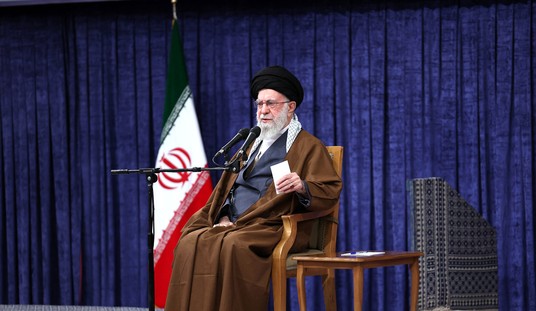The greatest “oops” moment in the history of liberal Hollywood may be the “You can’t handle the truth” moment that was made so electrifying by Jack Nicholson in A Few Good Men. Nicholson was supposed to be writer Aaron Sorkin’s bogeyman, but Sorkin and Nicholson made Col. Jessup’s entirely correct remarks about how “you want me on that wall, you need me on that wall” so convincing that they defined the movie. Today nobody remembers anything said by Sorkin’s supposed liberal hero, the crusading Tom Cruise character, whose next step after prosecuting Jessup seems likely to have been a campaign to get Marine companies to convene mandatory therapeutic discussion groups to assuage any hurt feelings before launching an invasion.
As Sorkin turns from the Cold War to business, his latest project, the acclaimed Facebook movie The Social Network, is starting to look like the great liberal “oops” movie of this decade.
The movie amounts to an attack on the character, motivations, and sheer rudeness of its central figure, the Facebook founding genius Mark Zuckerberg (played by Jesse Eisenberg), said to be the youngest self-made billionaire in the world.
Yet Sorkin’s evident disgust with Zuckerberg as a person is not what is really registering with younger audiences. The way they see it, Zuckerberg is a hero — a programming visionary who had an idea and ran with it, all the way to the end zone. Who cares if he clotheslined a couple of people who got in his way? Isn’t that part of the fun?
Scott Rudin, the movie’s producer, told the New York Times, “Older audiences see Zuckerberg as a tragic figure … while young people see him as completely enhanced, a rock star, who did what he needed to do to protect the thing that he had created.” Eisenberg added, “For a lot of people my age, the message is that technology allows you to create something that can change things from a single computer. You don’t need a secretary, you don’t need an office building and you don’t need employees.”
Sorkin puts so much energy into Zuckerberg’s alleged personality flaws that he places in the background the aspect of the story that is most dazzling to you or me — that a college student made something virtually by himself that would be worth billions in a few years. Zuckerberg is repeatedly seen in a state called “wired in” — ignoring the outside world as he pushes himself through Herculean all-night coding sessions to realize his dream.
The lawsuits, some chatter about getting into the right club at Harvard, and girlfriends are important to Sorkin, but not to Zuckerberg. He has discovered a world of pure capitalist freedom about which Ayn Rand could barely have dreamed. Without greasing politicians, mollifying unions, placating the press, or even obeying routine OSHA standards or minimum wage laws (Zuckerberg and his friends initially work for nothing), the hero is at liberty to build his idea as high as it goes.
The Social Network celebrates not only entrepreneurship, hard work, and capital investment (a $500,000 injection by venture capitalist Peter Thiel helped power Zuckerberg’s success) but also delayed consumption.
Writing in Forbes, John Tamny says:
Due to Thiel’s delayed consumption of $500,000, billions of dollars of wealth are and will be created thanks to his relative parsimony. In that case, when readers hear economists say the rich should hand over their money to the government so that it can be spent, they should remember the wealth wrought by Facebook’s rise and how very stimulative the hoarding ways of the rich actually are.
The film can also be seen as an (again, unconscious) vision of how much entrepreneurs can accomplish without regulatory authorities impeding their progress. Early in the film, Zuckerberg runs afoul of the local political class — the Harvard bureaucracy — who are offended when he invents a website that allows users to rate one another’s attractiveness. Sorkin frames this episode as one of privacy invasion and crass misogyny (in reality, Zuckerberg’s site included images of both sexes; in the movie, it’s only women who are held up for inspection) and is clearly on the side of a Harvard committee that meets specifically to scold Zuckerberg.
But Zuckerberg dismisses the feckless finger-wagging of these clueless twerps, and the audience will too. On this and many other occasions, he is the smartest guy in the room. No one ever said business is about playing nice.
An even better scene later in the movie finds Zuckerberg’s business rivals, the Winklevoss twins, who have up to this point prided themselves on a code of self-reliance, abandoning their principles and begging for intervention at the office of then-Harvard president Larry Summers. Summers — who is as rude as Zuckerberg in the film — gives them the brush-off, telling them that their disputes aren’t worthy of his time and that they should fight their own battles.
Sorkin may not realize this, but if his beloved liberal president and associated business-harassers and job-killers of The West Wing had such a hands-off attitude toward the corporations they see as evil, the creation of wealth and jobs in this country would be as fast-paced and exciting as The Social Network.









Join the conversation as a VIP Member